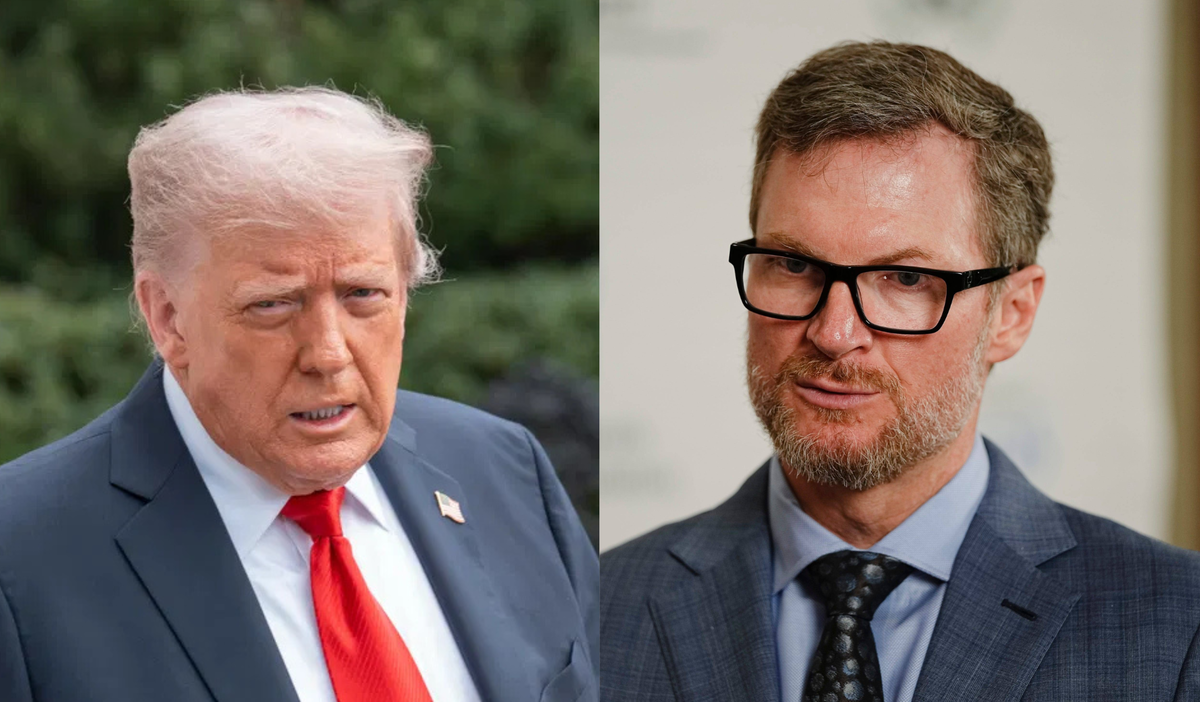

In returning to racing, North Wilkesboro knew that the track’s historical charm wasn’t a sufficient trick. Amidst NASCAR’s decline, modernization was the need of the hour. It called for a blend of structural, technological, and fan-experience improvements, and the speedway answered.
Watch What’s Trending Now!
From track surface and racing infrastructure to grandstands and fan facilities, Wilkesboro showed up and showed out. The result? An instant hit among fans and drivers with an All-Star event that forced a conversation on hosting a points race, too. It very obviously poses to be an answer as NASCAR sees once-filled-to-the-brim stadiums struggling to fill half the seats. But it isn’t as easy to replicate, and Dale Jr.‘s candid exchange with Steve O’Donnell, NASCAR’s president, explains why.
“Our racetracks are not considered similar to other sporting events like baseball arenas and NFL arenas. And what I believe I have learned is that if you want to upgrade or change anything, or do anything to your ballpark, you have some benefits, some breaks that allow you to do it in such a way where you are paying a discount, I suppose. NASCAR doesn’t have that.
Our racetracks aren’t considered under that umbrella. So if we want to upgrade the press box or the TV booth or put in a new grandstand or put in a big screen, that all has to come out of pocket. And there was a real opportunity, I think, in the last bill that went through, the big, beautiful bill or whatever. For that language to change, and it didn’t happen,” Dale Jr. expressed on Dirty Mo Media podcast.
The advantage that the major sports leagues hold over NASCAR is the tax benefits or stadium subsidies. If the franchises or clubs are going in for a hefty renovation, they enjoy subsidies in the form of tax-free municipal bonds or long-term tax exemptions, among others, from the local government. They receive cash grants from the city, helping them with operations as well. The same, however, cannot be said for NASCAR.
The majority of the tracks in the league are owned by NASCAR itself. A small percentage is attributed to the likes of Marcus Smith and a few independent owners. Naturally, unlike the other sports leagues, cities haven’t built and embraced the NASCAR race tracks themselves, which require a huge sum, only for a race or two per year. This often leaves the league’s hands tied when it comes to discussing upgrades, and maybe where the Big Beautiful Bill could have helped.
The Act, passed in July, made big changes to federal spending, taxes, and regulation. With a hundred more provisions on the same line tough, tax advantages for the motorsports facility were left out. A bit of a sting for a league that is relying heavily on TV money and sponsorships. To add to it, the viewership and attendance is suffering notably.
The race at New Hampshire last month recorded a 29% dip in viewership from the last year’s tally. As for the in-track attendance, the numbers have went down steeply. Phoenix’s capacity has gone from 100,000 in 2000s to around 40,000 as of 2024. For Daytona 500, from upwards of 150,000 to merely 100,000. Moreover, just this May, Kansas, one of the best tracks in the league, looked barely filled. Now, what has all of this led to?
“You are viewed as just a racetrack,” O’Donnell says. “And so our mindset now is can you go in and improve the short track? Can you do something cool? Modernize a little bit and then introduce some new tracks? But that’s our big challenge.”
Nonetheless, following Wilkesboro Speedway’s success that was built on $18 million federal funding, few more projects have been underway. Speedway Motorsports, for one, has set on a $60 million renovation project at the Nashville Fairground to bring NASCAR back to the historic racetrack.
On a larger scale, though, NASCAR might not have sufficient to generate an impressive enough fan experience while aiming for a surge. The best that the league can be helped with for now is “if they change legislation that helps and allows a multi-use venue,” according to Dale Jr. The result of the helping hand is already before us in the form of North Wilkesboro.



